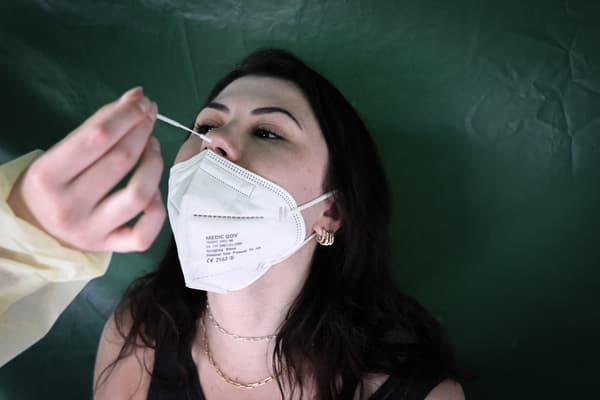Covid-19 has been showing the tip of its nose since the end of July. The Oscour network (Organization for Coordinated Emergency Surveillance) observed a slight uptick in cases of contamination and visits to the emergency room for suspected virus infection.
If in the midst of a pandemic everyone knew the procedure to adopt in the event of positive symptoms or tests, months later doubts may arise about the rules to follow. Rules that have also been modified since February 1, 2023 by the Ministry of Health. Among the big changes, the repeal of the obligation to isolate oneself in the event of a positive Covid-19 test, or to take the test in the event of contact with an infected person.
• What to do in case of symptoms or contact?
As soon as you feel the symptoms (fever or feeling feverish, cough, headache, sore throat, body aches, unusual fatigue, diarrhea), you should reconnect with the famous barrier gestures. Wash your hands well, notify those around you, keep your distance from others, avoid contact with fragile people, telework if possible… You should also take a test: it can be a self-test, an antigen test or a PCR test.
The mask is no longer mandatory but recommended. Fragile people, such as the elderly, immunosuppressed or chronically ill, are urged to wear it on a daily basis, especially in situations of high promiscuity.
Some establishments may require the use of a mask for those over 6 years of age: health and medical-social establishments, pharmacies or even medical biology laboratories.
Contact cases are no longer required to take a screening test two days after being reported by the sick person. However, they are invited to do so, as well as to respect barrier gestures and observe the appearance of symptoms.
Health Insurance has also abandoned “contact tracing” which consisted of tracing the thread of people who tested positive for Covid-19 and their contact cases.
• End of tests 100% refunded
Another change: the end of 100% coverage by Health Insurance of screening tests, whether for vaccinated people or not. But really, if you benefit from complementary health, it doesn’t change much.
The rest to be paid – which is 30% of the cost of the test if it is carried out by a doctor or a pharmacist and 40% if it is carried out by a nurse or a masseur – is fully reimbursed by the mutual company. , or complementary health insurance.
To get an idea, the RT-PCR test costs 41 euros and the antigenic test, at a variable price, 20 euros in pharmacies.
However, the reimbursement of 100% of the test is still in force for people with recognized long-term illness, over 65 years of age, minors, health professionals or even people subjected to an organized collective screening.

Self-tests that cost around 3.50 euros are not supported. But in some cases, they can be released upon presentation of proof: for children under 12 years of age in contact cases, for people in contact cases with a full vaccination schedule, National Education personnel, or even professionals of certain categories who work with old people. and people with disabilities.
In the event of a positive self-test, it is always advisable to perform an antigen or PCR test. For children under 3 years of age, self-testing is not recommended.
• Positive test: isolation no longer required
In case of a positive test, you no longer have to stay isolated at home. However, you must adopt the same behavior that you would adopt in the event of the appearance of symptoms, even if you do not feel any. Barrier gestures, avoiding contact with fragile people, warning those around you, encouraging teleworking… The people you meet must be alerted within 48 hours prior to the onset of symptoms, or within 7 days prior to the test in the absence of symptoms.
If the use of a mask is not required, it is strongly recommended. You should also contact your treating doctor to ensure follow-up of the disease, by teleconsultation or in person.
Please note that 100% coverage of teleconsultations, a measure implemented in 2020 during the health crisis, has ended. As for physical consultations, Social Security contributes 70% of the reimbursement. The remaining 30% is your responsibility or the mutual if you have it. 100% reimbursement is still possible in case of long-term illness, occupational disease or teleconsultation in connection with maternity.
• End of the repealing regime for work stoppages
If your health condition prevents you from working, you can request sick leave from your doctor. Now only a doctor can do it: it is no longer possible, from February 1, to request a derogatory work stoppage on the website dedicated to Health Insurance.
The waiting period now applies as for any work stoppage. And a positive test for Covid-19 no longer allows you to benefit from diets without consulting the conditions of the opening rights.
Source: BFM TV

